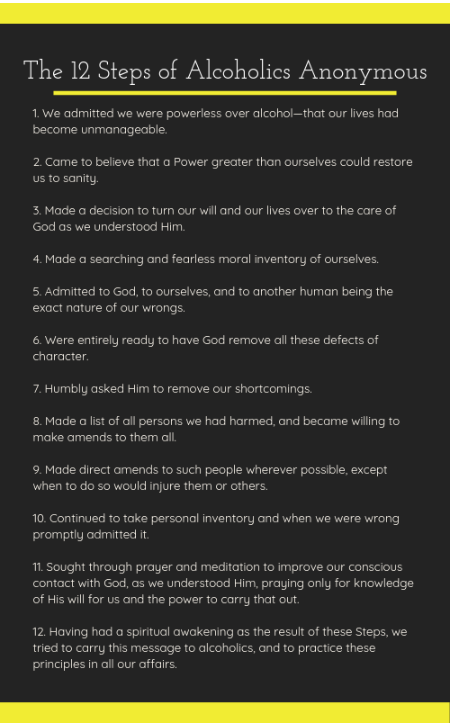If you look at the schedule of our days at The Ho Tai Way – Recovery for Women, you’ll see that you stay busy. During the day, you’re in classes and groups. You’re working through your treatment program and learning life skills. We have dinner, and then we go to a 12-Step meeting.
The Ho Tai Way Program Works With 12-Steps
The function of any 12-Step Program is to increase your self-awareness:
- You admit you’re powerless.
- You hand over control.
- You face up to who you are and the things you’ve done.
- Where possible, you make amends.
This is completely compatible with our purpose: to develop the practices of respect, compassion, honesty, generosity, and humility in our lives.
The difference between 12-Steps and Treatment
Sometimes there is animosity between approaches. Some people do manage to go through recovery without entering a formal treatment program–purely through 12-Steps. That doesn’t mean everyone can or should, especially if detox is needed.
And honestly, studies show that if you go through treatment without having a support group for long-term recovery when you come home, the chances of relapse are high.
Some in 12-Step programs will tell you treatment doesn’t work. Sometimes therapists won’t really want to delve into your 12-Step journey. Both treatments are huge mistakes. Everyone comes to recovery with different needs.
Treatment, therapy, and 12-Steps complement each other well.

The Strengths of 12-Steps
- The 12-steps are behavior centered. They focus on what you’ve done and what you do. As you focus on your behaviors, your thinking changes.
- You are inserting yourself into a different culture–one that supports your goals of recovery and abstinence. Wherever you go, you can find that culture again because 12-Step meetings are all over the world, even in the smallest of communities. This can replace whatever culture you are leaving behind that centers around your addiction.
- The people who are there have been where you are. Some have been in recovery for many years. Others may only be just ahead of you or starting at the same point. They share their experiences with you.
- You get a sponsor–someone who commits to being your friend and your mentor through the recovery process.
- There’s a structure. You know where you are in the process. Some steps may take longer than others. Some are definitely going to be harder than others. Everyone knows the process.
With All of That, You Still Need Professional Help
Counseling brings other strengths.
Addiction counselors are trained to lead you through the process of recovery. They recognize the manipulations that those struggling with addictions have learned to work. They recognize the lies that they tell themselves and others. They know how to call you on that and direct you in the way that will lead you toward healing.
Therapists also are a vital member of the addiction treatment team because too often, the addiction is working alongside a co-occurring disorder:
- Depression
- Anxiety disorders
- Bipolar
- Obsessive-compulsive disorders
- Personality disorders
- Executive functioning disorders
These are often part of the addiction picture. Co-occurring disorders complicate the recovery process, but the therapist can help you work through these while you’re working on your sobriety.
Taking care of trauma
Post-Traumatic Stress Disorder is a common reason for substance abuse. As you heal, you’ll need additional guidance in retraining your responses to stress and difficult situations.
A therapist can also help you put your history in context. Look through the 12-Steps above. While there are several steps that deal with how you treat others, there isn’t a whole lot that helps you process how others have treated you.
Abuse, violence, crime, neglect, and other ordeals that have shaped you are sometimes put under Step 4 by sponsors. It’s important that you know these aren’t your fault. You need support as you grieve those experiences and figure out how to move forward–especially if you are still in a relationship with those who have hurt you.
Life Skills
The other benefit that treatment at The Ho Tai Way – Recovery for Women brings is we also devote time toward improving your life skills. Since we focus on treating those in professional careers, we can direct our energies toward skills that may have been lost during your addiction or that you may have been weak on all along.
Regular tasks like laundry, cleaning, groceries, and creating a budget are skills that get neglected as the addiction gets deeper. Sometimes these feel boring–after all, they’re called “routines.” But these skills create a basic foundation for keeping your life stable.
Finding clean clothes shouldn’t be the adventure. You’ll have time for plenty of other adventures because you have clean clothes.
Days at The Ho Tai Way – Recovery for Women Are Full
We love the way a formal treatment program and 12-Step programs work together to support you in your recovery and we will make sure that happens for you. You won’t be bored, and you will have ample support as you journey through your treatment.
Call us at (714) 581-3974 with any questions or to get started or fill out our contact form. Our customer service representative will help you with anything you need and let you know what’s involved in getting started on your recovery.









